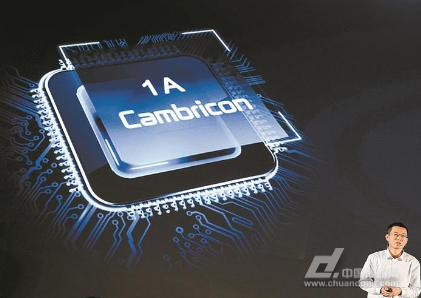Recently, the Chinese Academy of Sciences unveiled a new generation of artificial intelligence chips that are set to revolutionize fields like image recognition, security monitoring, and autonomous driving. This development marks a significant step forward for China's tech industry and is being closely watched by global observers. Chips have long been considered the "crown jewels" of the information and communications sector. Historically, this domain was dominated by a few major players, leaving China’s smart device manufacturers at a disadvantage. With only a 10% self-sufficiency rate in chip production, China has struggled to compete on the global stage. However, recent advancements suggest that this may be changing. In 2018, breakthroughs in domestic AI chips could help Chinese companies leapfrog into the 5G era, with Huawei leading the way as a true "China Core" player, now ranked among the top five globally. The low self-sufficiency rate of just 10% highlights the challenges China faces in achieving technological independence. Despite being the largest market for chips worldwide, China still imports the majority of its semiconductors. While Huawei has made strides with its own chips, other sectors like IC manufacturing remain heavily reliant on foreign technology. SMIC, China’s leading chip manufacturer, is working to catch up with industry leaders like Samsung and TSMC, which are already developing 7-nanometer technologies. In 2016 alone, China imported $227 billion worth of integrated circuits, underscoring the scale of the challenge and opportunity ahead. The push for "China Core" has become a national priority, driven by the growth of industries such as IoT, autonomous vehicles, and AI. As a result, the domestic chip industry is experiencing rapid development. Over 20 integrated circuit design firms have gone public, and more than 70 semiconductor companies are listed on the A-share market. According to the Ministry of Industry and Information Technology, the national chip sales reached 433.5 billion yuan in 2016, showing a 20% year-on-year increase. With continued investment and innovation, the future of China’s chip market looks promising. Analysts predict that the global chip industry is shifting toward China, with increased investment and a growing focus on packaging and testing—areas where China has already gained international competitiveness. The national strategy for chip development is accelerating independent R&D, paving the way for a surge in domestic chip production. In the third quarter of 2017, Counterpoint Research reported that Huawei’s HiSilicon chips captured 8% of the global SoC market, making it the first "China Core" company to rank among the top five globally. This achievement signals a shift in the competitive landscape, with Qualcomm leading at 42%, Apple at 20%, and MediaTek and Samsung following closely behind. Gartner also highlighted the booming chip market, noting a 22% growth in 2017 to $419.7 billion. Memory chips accounted for most of this growth, and Samsung overtook Intel for the first time since 1992, signaling a new phase of competition in the global chip industry. Looking ahead, AI is expected to play a central role in chip development. Companies like Apple and Huawei are integrating dedicated AI chips into their devices, while others are enhancing the AI capabilities of existing processors. This trend is likely to shape the next generation of mobile and computing technologies. The "Made in China 2025" plan aims to boost the country’s chip self-sufficiency to 50% by 2025, marking a critical turning point for the industry. With increased investments from both domestic and international players, China is well-positioned to accelerate its chip production capabilities. By 2020, nearly a third of the world’s wafer fabrication plants will be located in China, further solidifying its role in the global supply chain. The potential of the AI chip market is immense. In 2016, the global AI chip market was valued at $600 million and is projected to reach $5.2 billion by 2021, growing at a compound annual rate of 53%. China’s AI market alone exceeded 13 billion yuan in 2017, with expectations of reaching 20 billion yuan by 2018. As demand for AI chips continues to rise, China is poised to capture a larger share of this lucrative market. Communication expert Mai Haochao emphasized that AI extends beyond smartphones and computers, influencing areas like autonomous vehicles, drones, and smart home appliances. The demand for custom AI chips in these sectors is expected to far exceed that of traditional mobile devices. While many global giants focus on cloud-based AI solutions, China is positioning itself to lead in the development of terminal AI chips, a segment that holds great potential for growth. With the chip industry moving toward Asia, strong demand for import substitution, and supportive government policies, China’s chip industry is gaining momentum. The path to technological independence is challenging, but the progress made so far shows that the "China Core" is no longer just a dream—it is becoming a reality. Consumer Electronics DongGuan BoFan Technology Co.,Ltd. , https://www.ufriendcc.com